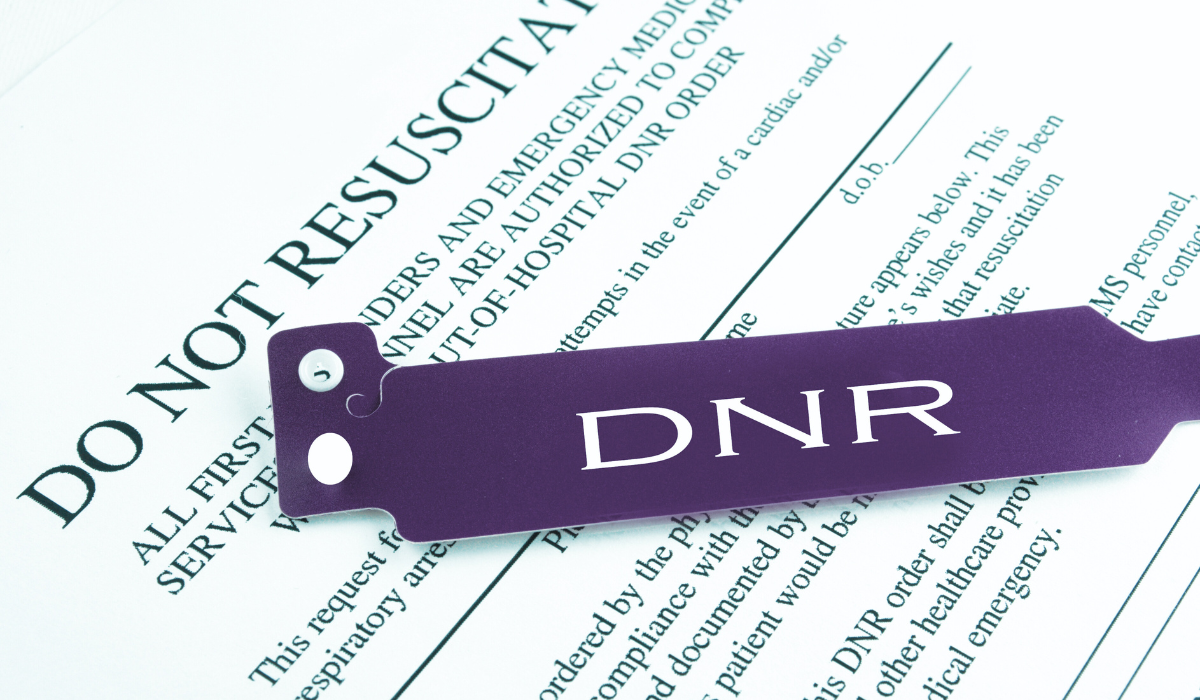As our loved ones age, it becomes increasingly important to have conversations about their end-of-life wishes and medical preferences. One such consideration is a Do-Not-Resuscitate order, commonly known as a DNR.
This legal document plays a significant role in ensuring that medical professionals honor an individual's wishes regarding resuscitation attempts in the event of cardiac arrest or other life-threatening situations.
In this article, we will explore what a DNR order entails, why it is important for elderly parents, and how to approach this topic sensitively and responsibly.
Understanding Do-Not-Resuscitate Orders
A Do-Not-Resuscitate order is a legal document that communicates a person's desire to forego cardiopulmonary resuscitation (CPR) in the event of a medical emergency where their heart stops, or they stop breathing. CPR involves chest compressions, rescue breathing, and sometimes, electrical shocks to restore a person's heart rhythm. A DNR order is specifically designed for individuals who have a serious illness, are nearing the end of life, or have expressed their wish to avoid aggressive life-saving measures.
Why It Matters for Elderly Parents
As our parents age, they may face various health challenges and medical decisions. It is crucial to understand their wishes regarding end-of-life care, especially when it comes to resuscitation. DNR orders are particularly relevant for elderly parents who may have chronic conditions, multiple comorbidities, or a poor prognosis. These orders ensure that medical interventions align with their preferences, preventing unnecessary suffering, invasive procedures, and potential complications that may arise from resuscitation attempts.
Approaching the Conversation
Broaching the topic of end-of-life decisions, including DNR orders, can be emotionally challenging. Here are some suggestions on how to approach the conversation with your elderly parents:
- Choose the right time and place: Select a calm and private environment where you can have an uninterrupted conversation without distractions.
- Show empathy and active listening: Approach the discussion with sensitivity, allowing your parents to express their concerns, fears, and desires. Listen attentively and validate their feelings.
- Use open-ended questions: Instead of imposing your own assumptions, ask open-ended questions that encourage your parents to share their thoughts. For example, "Have you ever thought about what kind of medical treatments you would prefer if your health declined?"
- Share information: Provide clear and concise explanations about what a DNR order entails, the possible scenarios where resuscitation might be required, and the potential benefits and drawbacks of having a DNR order.
- Involve healthcare professionals: If necessary, consider involving your parents' healthcare provider to offer medical advice and answer any questions or concerns they may have. This can help ease anxieties and provide expert guidance.
Final Thoughts
Having conversations about end-of-life care and decisions, including a Do-Not-Resuscitate order, is essential for ensuring that your elderly parent’s wishes are respected. These discussions can be difficult, but approaching them with compassion and respect can facilitate open communication.
The goal is to honor your parent’s autonomy and provide them with a sense of comfort and control over their medical treatment choices. By having these discussions, you can help ensure that their wishes are followed and provide them with peace of mind in their later years.
We hope this article has shed light on the importance of discussing Do-Not-Resuscitate (DNR) orders with elderly parents and provided guidance on approaching this sensitive topic. We would love to hear your thoughts and experiences regarding end-of-life discussions and DNR orders. Share your comments below to continue the conversation and help others navigate this challenging aspect of caregiving.
 Attention family caregivers! Are you struggling to provide the best care for your aging parents? Don't worry, we've got you covered. Download our free guide, Caring for Your Loved Ones: 10 Essential Tips for Family Caregivers of Elderly Parents, and unlock the secrets to becoming an exceptional caregiver. From adapting the home environment to promoting independence, this invaluable resource will transform your caregiving experience into a more rewarding journey. Don't wait—give your loved ones the care they deserve, and download your free copy today!
Attention family caregivers! Are you struggling to provide the best care for your aging parents? Don't worry, we've got you covered. Download our free guide, Caring for Your Loved Ones: 10 Essential Tips for Family Caregivers of Elderly Parents, and unlock the secrets to becoming an exceptional caregiver. From adapting the home environment to promoting independence, this invaluable resource will transform your caregiving experience into a more rewarding journey. Don't wait—give your loved ones the care they deserve, and download your free copy today!

